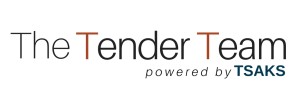Plans and systems to put forward a compliant tender response
Our bid and tender writers across Australia are often asked by our clients to create plans and systems for clients to include in their tender responses. We have a range of free templates which we provide clients for use. We also take the time to tailor any plans, such as environmental management plans and quality management systems to your business for submission with your tender response.
For many tenders issued (government, in particular), the tenderer will often need to provide Tender response systems and plans. Sometimes having the correct management systems and response plans is vital to your tender even being accepted for review. This is often the case for local Council and government tenders. You need to provide compliant supporting documentation with your bid in order to be successful.
Tailoring your plans to the project you are working on
A lot of the tender when creating management systems, plans and other supporting documentation for tender it’s not good enough to simply use a template and change the words. From a practical perspective, sometimes procurement teams will not want to or need to review your plans in detail.
However, for contracts where they are highly relevant to the services you propose to provide, it’s different. You need to tailor your supporting documentation not only to the tender or opportunity, but also to the specific project.
Tailoring your documentation, for example, safety documentation on a building site near a school, or quality assurance documentation specific to road surfacing or other works, is critical to winning your next contract or bid and demonstrates to the procurement team that you are committed to the project and understand and have insight into the project requirements.
Types of plans and systems you need to use in tenders
Below are some examples of tender response systems and plans that will greatly increase your tender win rates.
Quality Management System
There are many possible tender response systems and plans in government tenders that will require you to have implemented or be willing to implement a quality management system that applies to all aspects of the business. A QMS is a set of policies and procedures that ensure that the business provides products/service standards that align with customer expectations.
For many first time tenderers, however, the notion of paying thousands of dollars for a certified 3rd party QMS seems unreasonable when there is never a guarantee you’d even win the tender. Here at the Tender Team, we prepare for these situations by providing a sensible QMS outline that demonstrates your confidence in having such a system in place quickly at the start of the contract, or during its implementation period.
We recognise that a QMS is unfeasible for those businesses responding to tenders the first time around and we ensure that any responses we provide in our tender proposals do their utmost to satisfy the selection panel/procuring team’s requirements.
Risk/Safety Management System
In line with OHS standards, the risk/safety management system amongst the many possible tender response systems and plans showcases how a tenderer does it best to mitigate risks in the business’s operations. These plans and systems are a must and are often asked about when the services required involve a fair amount of risk. Working with dangerous materials such as industrial chemicals, operating in hostile environments or even acknowledging extreme events are all included in a risk/safety management plan.
The Tender Team walks our clients through their business activities, analysing what risks to appropriately identify and how best to reduce their possibility of occurring. For the first time tenderers, it is useful to construct a table listing out
- Potential risks
- Characteristics
- Time and tools necessary to mitigate or rectify them.
The Risk/Safety Management System and Plans are always important to have for any tenderer as they apply to the business regardless of whether or not they are required as part of a tender response.
Business Continuity Plan
Sometimes, a tender will ask you about ‘what-if’ situations where staff are unavailable and resources are missing in order to fulfill a contracted product or service. The Business Continuity Plan covers these contingencies and with the Tender Team’s assistance, we tailor such a plan to your own specific needs and requirements.
Here are some common themes for this plan;
- Risk Management Planning
- Business Impact Analysis
- Incident Response Plan
- Recovery Plan
The aim of the Business Continuity Plan is to demonstrate that the tenderer is prepared in all situations to handle any significant impact (often negative) to the business’s operations while maintaining normal productivity and delivery. Should a specialised employee fall ill or decide to leave their position, this plan will account for that scenario and provide a guide for how best to address the sudden gap in skills required and steps for filling the gap as soon as possible.
The Tender Team proposes that regardless of whether or not a tender response requires this plan, our clients should always consider forming one anyway for future purposes. In doing so, we are able to assist our clients with not only winning new business but helping to protect the business itself.
Contract Management Plan
A contract is a primary document between two or more parties for any business arrangement. At the Tender Team, we are often asked in our tender proposals what Contract Management Plan the tenderer will have in place at the start and during the contract’s duration.
If the tender response is successful, our client will need this plan in order to clearly set out the procedures in place for performing the contract and also the steps to be taken when the contract stipulations become complicated or impossible to perform.
Here are some of the common areas these plans cover;
- Pricing Models
- Key Performance Indicators
- Contract Terms and Variations
These areas help both businesses to enforce their sides of the contract, keeping the business relationship harmonious while providing an avenue for dispute resolution should it ever be necessary. The Tender Team encourages our clients to take this plan in particular quite carefully and to acknowledge how best their needs will be protected as they perform their services for their own customers.
Key Performance Indicators, in particular, are often a source of conflict as a failure to meet them often leads to disputes between either party. In this case, the Tender Team will advise on ways our clients can protect themselves in this scenario while endeavoring to meet KPIs adequately in future.
Need more detailed assistance with tenders requiring any or all of these plans above?
Talk to our tender and bid writers for assistance
Call the Tender Team today at +61 410 448 770 or email us at info@thetenderteam.com.au to enquire about our services with a free consultation or to answer any questions regarding tender response systems, plans and other supporting documentation for your tender.
We help business across Australia including in Sydney, across NSW, Brisbane and across Queensland, Melbourne and across Victoria, Perth and across WA and the Northern Territory create plans and systems for use in bids and tenders.






[…] For a more detailed explanation on each of these systems and plans please click here. […]